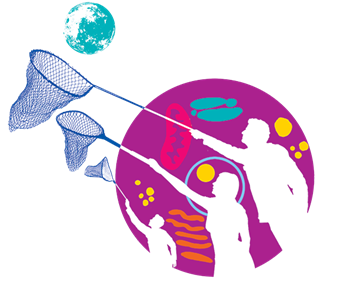(单词翻译:单击)

A couple of weeks ago I wriggled my way into an overcrowded conference room at the World Economic Forum in Davos to listen to US vice-president Joe Biden talk about efforts to cure cancer with a “moonshot” (an American buzzword for high-risk, potentially high-return forms of research).
1月的某一天,我挤进达沃斯世界经济论坛(WEF)一个拥挤的会议室,听美国副总统乔•拜登(Joe Biden)谈论发起一个“登月计划”(moonshot)治愈癌症的努力(moonshot是个美国流行词汇,代指高风险和潜在高回报的研究形式)。
It was very revealing for two reasons. For one thing, when I saw Biden performing at close quarters, I finally realised why Democratic party elders have been muttering for months that he would be their preferred presidential candidate if Hillary Clinton fails to galvanise the voters.
这极其发人深省,原因有两个。首先,当我近距离观察拜登的表现时,我终于意识到为何民主党的元老们数月以来一直在说,如果希拉里•克林顿(Hillary Clinton)无法激励选民,拜登将是他们青睐的总统候选人。
Biden can connect with an audience with an ease that, sadly, Clinton often lacks: though he arrived woefully late for the moonshot meeting, he oozed such charm that the audience (almost) forgave him. And when he explained why he was involved in the moonshot initiative — namely because his own son died of brain cancer — he was compelling. “I have experienced the dreaded C word, which is the most frightening word that anyone wants to hear walking out of the office,” he said. “Had I run [for president] I would have liked to be the president who changes the face of cancer — we need an absolute moonshot.”
拜登可以轻而易举地与观众交流,遗憾的是,希拉里经常欠缺这点:尽管他迟到了很久才露面,但他在“登月计划”会议展露出来的魅力让观众几乎原谅了他。当他解释他为何参与这项“登月计划”时(因为他自己的儿子死于脑癌),他的话令人信服。“我经历过癌症这个可怕的词,这是人们在走出办公室的时候希望听到的最可怕的词,”他表示,“如果我竞选(总统),我希望成为一位改变癌症面貌的总统,我们绝对需要登月计划。”
But the more important reason why the session was so revealing was the nature of the people Biden had gathered together. Some — including Toby Cosgrove, president of Cleveland Clinic, and José Baselga, chief physician from Memorial Sloan Kettering Cancer Center — were doctors in the classic sense. But many were not. There were professors from other disciplines, and IT experts such as Bill McDermott, head of SAP software group, who was keen to explain how researchers can use big-data techniques to search for patterns in the mutations of cancers.
但此次会议如此发人深省的更重要原因是,拜登将各种类型的人召集在了一起。一些人是经典意义上的医生,包括克利夫兰诊所(Cleveland Clinic)所长托比•科斯格罗夫(Toby Cosgrove)和纪念斯隆凯特琳癌症中心(Memorial Sloan Kettering Cancer Center)首席医师何塞•巴塞尔加(José Baselga)。但很多人不是。其中有来自其他行业的教授和软件集团SAP首席执行官比尔•麦克德莫特(Bill McDermott)等IT专家;麦克德莫特热衷于解释研究人员如何能够利用大数据技术寻找癌症变异的规律。
There were biologists on the platform too, and a chemical engineer — Paula Hammond, head of chemical engineering at MIT. As Professor Hammond observed, scientists could borrow nanotechnology ideas from chemical engineering to breach biological barriers.
发表演讲的还有生物学家和化学工程师、麻省理工(MIT)化学工程负责人保拉•哈蒙德(Paula Hammond)。正如哈蒙德教授认为的那样,科学家可以从化学工程领域借鉴纳米技术创意,以突破生物屏障。
“If you asked a psychologist or philosopher what the role of a chemical engineer in fighting cancer [might be], there would not be a ready answer,” Biden explained. “But my son had cancer and one of the things he was talking about was the blood-brain barrier.”
“如果你问心理学家或哲学家,化学工程师在抗击癌症中的作用(可能)是什么,或许没有现成的答案,”拜登解释称,“但我的儿子患了癌症,他曾经谈到的一件事是血脑屏障。”
This disparate collection of people illustrates a bigger point: that many scientists realise that if they want to have any chance of curing cancer, they must break out of their medical silos. One of the key paradoxes in medicine today is that while technologies are increasingly straddling medical silos, practitioners are stuck in their narrow fields more rigidly than before. What Biden — and others — emphasise is that knocking down these silos is almost as important as throwing money at any cancer moonshot (the total price tag for Biden’s project is estimated at $1bn). “When you go home and talk to your friends about a cure for cancer, I bet that none of them say ‘data’ and ‘standardisation’,” he explained. “But we have to find a way to break down those silos. This is crucial.”
不同类型的人聚集在一起说明了一个更重要的问题:很多科学家意识到,若要有任何机会治愈癌症,他们就必须突破医学“竖井”。当今医学的一个重要悖论是,尽管科技日趋跨越医学“竖井”,但医学研究人员比以往更僵化地固守自己所在的狭窄领域。拜登和其他人强调,突破这些“竖井”几乎与在癌症“登月计划”方面投入资金一样重要(据估计,拜登癌症项目的总投入为10亿美元)。“当你回家与朋友们讨论治愈癌症时,我打赌没有人会说‘数据’和‘标准化’,”他解释称,“但我们必须找到突破这些‘竖井’的办法。这一点至关重要。”
Does Biden stand any chance in this respect? If you talk to individuals who are working within the gigantic American health system, it is painfully hard to feel optimistic. Last week, I took part in a medical debate in Baltimore and heard officials describe with horror the silos that beset Washington’s mighty National Institutes of Health (apparently there are 27 different departments in the NIH, which are often reluctant to collaborate). And last year I listened as the actor Michael J Fox, who suffers from Parkinson’s, talked about the silos undermining the search for a cure for that disease too; indeed, one of the reasons Fox created his own research foundation was precisely because he was so horrified by the fragmented pattern he saw.
从这方面来说,拜登是否有成功的机会?如果你与在庞大的美国医疗体制内工作的个人探讨,你很难乐观。最近,我参加了在巴尔的摩举行的一场医学辩论,听到官员们恐惧地介绍困扰着强大的美国国家卫生研究院(NIH)的那些“竖井”(该协会貌似有27个不同的部门,彼此间往往不愿合作)。去年,我还听到罹患帕金森症的演员迈克尔·J·福克斯(Michael J Fox)讲述了影响帕金森症治疗研究的“竖井”;的确,福克斯创建自己的研究基金会的原因之一恰恰是他对自己目睹的这种各自为战的格局感到害怕。
Nevertheless, even if I am somewhat cynical about Biden’s chances of success, he deserves credit for at least putting the issue on the map; and if anyone has enough political muscle to force change, it just might be him. “I am very rude when dealing with bureaucratic delays,” he said. And it seems that whatever he does — or does not — achieve with his “moonshot” will probably feel more meaningful to him than anything he might have done in Iowa, New Hampshire or elsewhere in the grubby presidential race.
然而,即便我对拜登的成功几率有些怀疑,但他至少会因为提出这个问题而受到赞誉;如果说有谁拥有足够强大的政治实力推动变革,这个人或许就是他。他表示:“我在对付官僚拖延方面非常粗暴。”不管他的“登月计划”会实现什么(或者不会实现什么),对于他而言,这或许比他在污秽的总统竞选中在爱荷华州、新罕布什尔州或其他角落可能实现的任何成就都更有意义。
I wish him the best of luck; history sometimes twists in strange ways.
我祝他好运;历史有时会造就奇怪的转折。


